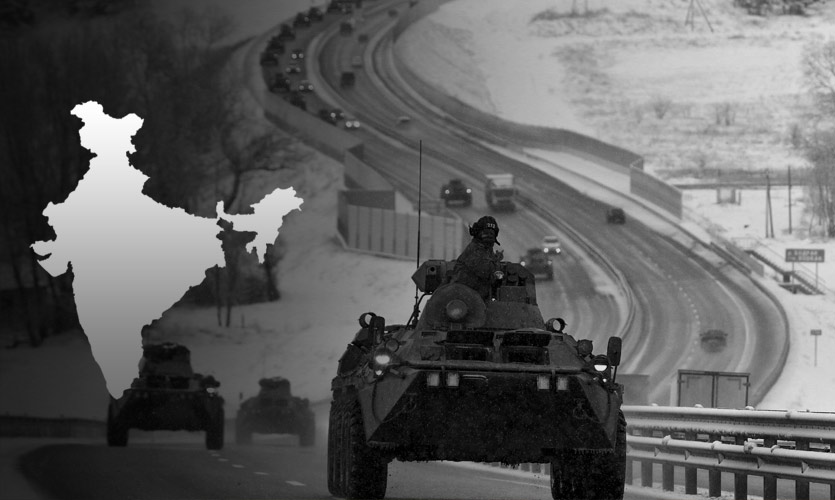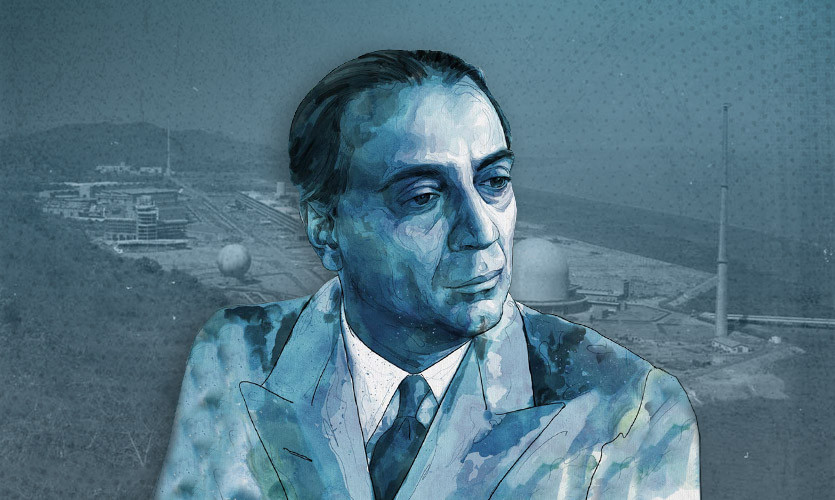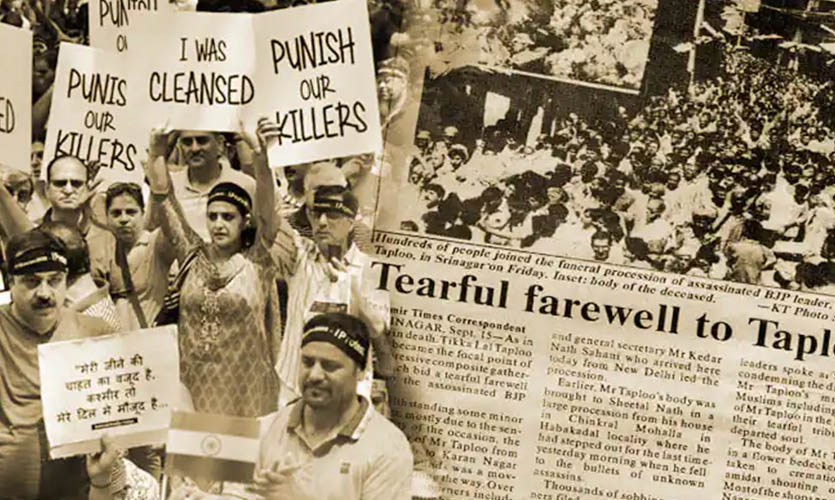On March 4, India abstained from voting at the UN Human Rights Council, on the draft resolution to establish an independent international commission to enquire the situation of human rights after the escalation of Russian aggression in Ukraine.
On March 2, India had abstained from voting in favour of deploring Russia’s actions at the UN General Assembly. The third abstention had come a day after the death of an Indian student in Ukraine, due to a Russian missile strike.
A Diplomatic Failure
After what can only be termed a massive diplomatic failure of the US and NATO allies, Russia launched a “special military attack” on Ukraine last Thursday, on February 24. Over a week since, the Russian military has continued its attacks, with the Ukrainian army and civilians ardently resisting, leading to rising casualties on both sides. This is the second time in six months that the North Atlantic Treaty Organization (NATO) has fallen short, after a hasty Afghanistan exit in August 2021.
Before Russia attacked Ukraine, President Vladimir Putin had issued several warnings, particularly against Western interest in the country. “This is not about us giving some kind of ultimatum, there is none. The thing is that the seriousness of our warning should not be underestimated,” Russian deputy foreign minister Sergei Ryabkov had said in December 2021. In its detailed eight-point draft treaty, the Russian foreign ministry outlined several demands, including the return of NATO forces in eastern Europe to where they were before 1997. In effect, it demanded that any NATO troops or weapons deployed to countries after 1997 be removed. This would include removing forces from current NATO allies such as Estonia, Latvia, Lithuania, the Balkan countries (part of the former Soviet Union), and Poland. Russia had also demanded that the NATO give a security guarantee to the country, and rule out any prospects of further expansion, thereby negating any chance of Ukraine joining the alliance. It had also said that the NATO should not hold drills in Ukraine, eastern Europe, the Caucasus, and Central Asia, without prior agreement with Russia. After months of long-drawn-out talks between Russia and the US, with French President Emmanuel Macron also making genuine attempts at reaching a peaceful resolution, Putin escalated the crisis by sending in Russian forces amassed at Ukraine’s borders.
NATO head Jens Stoltenberg had refused to deny Ukraine a membership into the alliance, saying that it was up to the country and NATO member states. Reportedly, there are already obstacles to Ukraine becoming a NATO member, including its territorial dispute over Crimea, which was annexed by Russia in 2014. According to Article 5 of the Washington Treaty, NATO member states follow the principle of “collective defence”, which means that an attack on one ally is considered to be an attack on all allies. Russia’s invasive attacks, although out of proportion, may be considered an act of self-preservation.
Following Russia’s invasive attacks on military establishments and civilian habitations, the US reacted by placing several sanctions on the Russian president and several business elites of the country. Several countries also froze their foreign assets. Moreover, in an extraordinary development, Switzerland ditched its 207-year-old tradition of neutrality to join the European Union (EU) in putting similar sanctions on Russia. This included freezing private money, suspending trade relations, closing the air space to Russian flights, and travel bans on 367 influential Russians. Responding to the development, Russian Foreign Minister Sergei Lavrov dismissed the threat of sanctions, and said, “We’re used to it. We know that sanctions will be imposed anyway, in any case. With or without reason.” Following the sanctions, one of the first threats that Russia issued was regarding the aerospace industry. Russian space agency Roscosmos’ Director General Dmitry Rogozin had tweeted in Russian, “If you block cooperation with us, who will save the International Space Station (ISS) from an uncontrolled deorbit and fall into the United States or…Europe?” He added that there is also the “possibility of a 500-tonne structure falling on India and China”. He said, “Do you want to threaten them with such a prospect? The ISS does not fly over Russia, therefore all the risks are yours. Are you ready for them?”
Why Does India Need To Stay Out Of It?
Putin may have isolated himself from the rest of the world by going to war, but the rest of the world certainly has more to lose. India is particularly dependent on Russia for its defence and energy needs. India’s strategic independence has been beneficial since the Cold War, especially during armed conflicts with Pakistan in the 1999 Kargil War and after the 2001 attack on the Indian Parliament. Russia makes up for nearly half of India’s defence equipment imports. Last year, India agreed to cooperate with Russia on military technology, for the next decade. Russia’s S-400 defence missile systems form a crucial part of India’s military strategy against China. Moreover, Russia enjoys warm ties with China and Pakistan, which could possibly come in handy soon.
Ukraine and other Western countries expecting India’s help or support in the crisis seems almost foolish. On March 3, the US threatened India with sanctions once again, after it abstained on voting against Russia at the UNGA. “We have spared no effort to try to convince India both to vote in UN sessions but also to show support for Ukraine at this critical moment,” said senior US diplomat Donald Lu. “I hope that part of what happens with the extreme criticism that Russia has faced, is that India will find it’s now time to further distance itself,” added Lu. This is not the first time the US has threatened India over its relationship with Russia. It expects India to especially comply after the formation of the Quadrilateral Security Dialogue (Quad). However, they seem to have forgotten that India is the key player in the Quad. In 2019, the worth of bilateral defence deals alone, between India and the US, jumped to $15 billion. Moreover, India is the most cordial co-operator of the US in the Indian subcontinent, and the lack of sanctions so far is indication that India is no pushover. NATO allies and the US would do well to remember the recent mess created in Afghanistan before making tall demands.
Additionally, Ukraine has not exactly been a friend to India. It is one of the most active suppliers of arms to Pakistan. Pakistan awarded a $85.6 million worth contract to Ukrainian state arms conglomerate Ukroboronprom, for modernising its T-80UD battle tanks, in February 2021. Ukraine has also consistently voted in favour of UN intervention in Kashmir, and for UNSC sanctions against India after the 1998 nuclear tests.
Nevertheless, India has maintained and voiced the need for diplomacy. “The contemporary global order has been built on the UN Charter, international law and respect for the sovereignty and territorial integrity of states. all member states need to honour these principles and find a constructive way forward,” said TS Tirumurti, India’s Permanent Representative to the UN, while explaining the decision to abstain on the UNSC resolution to declare that Russia had violated international peace and security. “I don’t think diplomacy can be reduced to arms supplies and condemnations. There is much more substance and nuance to foreign policy,” External Affairs Minister Dr S Jaishankar had maintained last week.
India’s cooperation with Russia is the most defining thing that has led to the success of the rescue efforts under Operation Ganga. While the Ministry of External Affairs has denied that Russia had instituted a six-hour ceasefire in Ukraine to specifically evacuate Indian nationals, Putin made the effort of emphasising to PM Narendra Modi that Russia will ensure safe evacuation of Indian citizens stuck in Ukraine. Although there have been Indian casualties, India has been allowed and aided to carry out relief efforts almost freely via foreign chapters of several organisations such as the Art of Living Foundation and BAPS Swaminarayan Sanstha. The organisations have been making efforts to evacuate Indian, Ukrainian and other nationals, and provide them with food and shelter. In a rare instance since 2014, the Indian opposition leaders have backed the Centre’s efforts to prioritise the security and safe return of all Indian citizens in Ukraine. “Frank discussions took place in an amicable atmosphere, a reminder that when it comes to national interests we are all Indians first and foremost,” said senior Congress MP Shashi Tharoor after a meeting of the Consultative Committee on External Affairs, thanking the MEA for a “comprehensive briefing and candid responses” to concerns.
Further Escalation
There is no doubt that Putin has surpassed all expectations of the lengths he is ready to go to in Ukraine. His initial assurance of not wanting to take over Ukraine entirely seems to have been a two-faced albeit transparent war tactic to keep other nations from coming to Ukraine’s aid too quick. After a 90-minute phone call with the Russian president on March 3, French President Macron was reportedly not very reassured. “We expect the worst is yet to come,” a French government source told reporters yesterday. “He is prepared to go all the way. He said the operations are based on the refusal of Ukrainians to put in place the Minsk agreements and on the denazification of Ukraine,” added the source.
Ukraine continues to defend itself without a NATO and EU membership. The mess in Europe is a classic example when India needs to mind its own business. Not to say that it should support Russian aggression but to assert that it must put itself first considering hollow Western promises.
Strategic independence is India’s only way forward.
The Horus Eye is a weekly column written by Divya Bhan analysing current affairs and policies. This column does not intend or aim to promote any ideology and does not reflect the official position of The Sparrow.










